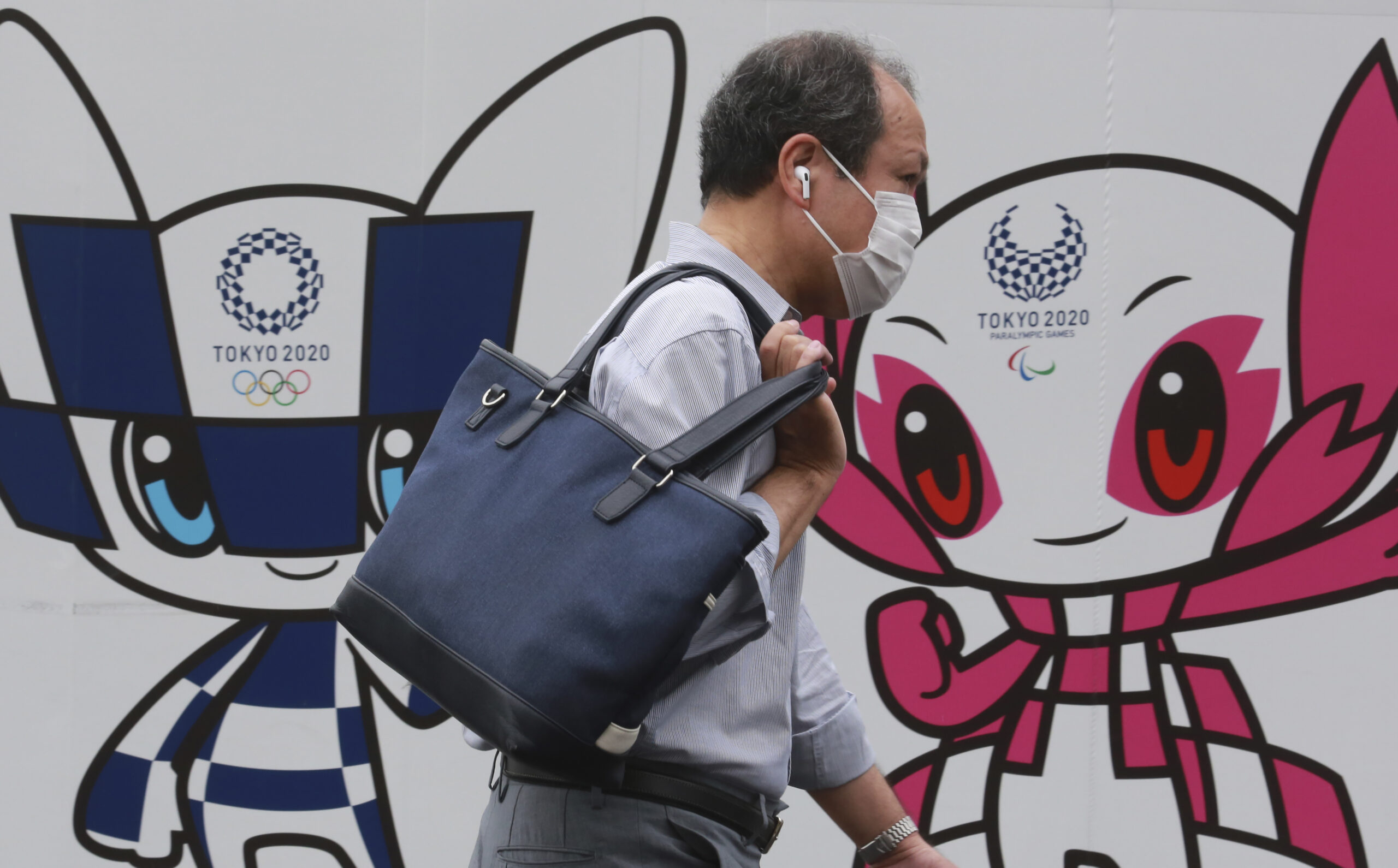
One day after reports indicated that the Olympic and Paralympic Summer Games in Tokyo would allow Japanese citizens to attend in a restricted number, the top medical adviser to Japan’s government is trying to reverse those leaks and said that no fans should be allowed for the country’s health.
Dr. Shigeru Omi’s recommendation is not what organizers and the International Olympic Committee would have wanted to hear — in all honesty — with the Olympics opening on July 23. While foreign fans have already been banned months ago, the indication this week from Japanese media was that organizers would allow up to 10,000 fans at some of the venues once the local state of emergency was officially lifted on Sunday.
“We believe the risks of infections inside venues would be lowest by holding the event with no fans,” said the report, which was compiled by a group of 26 experts led by Omi, a former World Health Organization official. It was submitted to the government and Olympic officials.
“We believe it would be most desirable not to have fans inside venues,” Omi told a news conference on Friday after submitting the written report. “Regardless of holding the Olympics or not, Japan has continuing risks of a resurgence of the infections that puts pressure on the medical systems.”
Emergency measures in Tokyo and other prefectures are being lifted on Sunday.
Seiko Hashimoto, the president of the local organizing committee, said that the final decision on local fans was likely to be made Monday in a meeting with organizers, the IOC, the Tokyo metropolitan government, the Japanese government and the International Paralympic Committee.
“Dr. Omi has indicated that ideally the best way is to hold the games without spectators — that was his recommendation,” Hashimoto said. “But if we are to hold the games with spectators, Dr. Omi also had his recommendations.”
Omi said that putting fans in the venues increased the risk — and not only there but afterward as people exit. He said the Olympics easily get more attention from the public than other sporting events and are likely to trigger more movements and more partying.
Organizers say about up to 3.7 million tickets are still held by residents of Japan; the total number of tickets originally announced for the Olympics was about 7.8 million.
The IOC is pushing ahead with Tokyo because it depends on broadcast rights sales for almost 75% of its income. Sponsors supply about 18% of the IOC’s revenue, making it financially impossible for the organization to exist without the Olympics.
But while not having fans would not affect those revenue generators for the IOC, ticket sales — and potential refunds — would be another cost for the Tokyo organizers, who have already spent over $15 billion in preparation for the Games. Ticket sales were to account for $800 million in income for the organizing committee. Much of it will be lost and government entities will have to make up the shortfall.
Kyodo News had reported that an announcement on fans at the Olympics would be upcoming after experts signed off on a plan to allow crowds of up to 10,000 people at events. The final call would be made after considering coronavirus infection conditions and the prevalence of variants, Chief Cabinet Secretary Katsunobu Kato told reporters.
Yasutoshi Nishimura, the minister in charge of coronavirus response, told a COVID-19 subcommittee governmental meeting on Wednesday that the plans for attendance at events such as sports and concerts in July and August were to cap attendance at 50 percent or 5,000 people, whichever was greater. But given the size of some of the Olympic venues — the National Stadium, where the Opening Ceremony will be held, seats 68,000 — an adjustment down to 10,000 maximum was recommended.
At the G7 summit this week, Japanese Prime Minister Yoshihide Suga weighed in on capacity limits, saying “taking into account the level of COVID-19 infections, we’ll decide [on capacity] in accordance with the numbers allowed at other sporting events.”
Japan’s rate of vaccination among its population has increased but it still dramatically low compared to other countries at just over 5 percent. But the IOC said on Tuesday when announcing its latest set of COVID guidelines for the Games that up to 80 percent of the athletes that will be competing are vaccinated and that up to 80 percent of the accredited media expected to be in Tokyo are also vaccinated.
While Tokyo and Japan are facing gigantic budget deficits with the cost of the rescheduled Games, one company will be rolling in revenue. NBCUniversal Chief Executive Jeff Shell said on Monday the Games could be the most profitable Olympics in NBC’s history, having sold more than $1.25 billion in national advertising in March 2020 before the year-long postponement, a record at the time.
Shell, speaking at Credit Suisse’s virtual Communications Conference, downplayed concerns leading to the Opening Ceremony in Tokyo, saying “I lived in London: everybody was worried about the traffic. And last time it was Zika, and then once the Opening Ceremony happens, everybody forgets all that and enjoys the 17 days. And I think this is going to be the same thing.”











 Copyright © 2025 by Northstar Travel Media LLC. All Rights Reserved. 301 Route 17 N, Suite 1150, Rutherford, NJ 07070 USA | Telephone: (201) 902-2000
Copyright © 2025 by Northstar Travel Media LLC. All Rights Reserved. 301 Route 17 N, Suite 1150, Rutherford, NJ 07070 USA | Telephone: (201) 902-2000